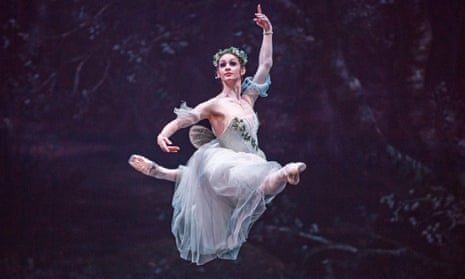How many swans or sugar plums can a ballerina endure before she jetées for the exit? Laurretta Summerscales, a leading dancer with the English National Ballet, left last season for the Bavarian State Ballet in Munich, telling Dancing Times magazine that she yearned for a broader repertoire than the smaller British company could provide. “At ENB, we always had the Christmas Coliseum season of The Nutcracker and I knew we’d continue to perform Akram Khan’s Giselle a lot,” she said. “I wanted to do Don Quixote and La Bayadère as I’d always dreamed of dancing those ballets.”
It seems unfair to pummel the ENB, which, under director Tamara Rojo, punches above its weight with a livelier repertoire than most. She has programmed fighty modern landmarks by Pina Bausch and William Forsythe, and new work by Akram Khan. But the company’s bread and butter are long seasons of Swan Lake and the annual Nutcracker, and for dancers the shine may have long rubbed off the gleaming Tchaikovsky scores.
Summerscales is an arresting performer who twice won the ENB’s People’s Choice award. She, understandably, wants to test herself, especially in the demanding 19th-century classics. But these are expensive ventures – massive casts, acres of costume – and, as the ENB’s lauded production of Le Corsaire proved, don’t always draw crowds.
It is a vicious circle, especially when budgets are squeezed. Audiences flock to reliable pleasures, so the range of risk-free titles contracts. Every experiment needs a tutu-tastic banker, so the swans and the Nutcracker sweeties are hauled out of storage once again. Britain’s classical companies, especially those touring to vast theatres, struggle with that conundrum (the relatively plush Royal Ballet, which stays snug at Covent Garden, is in a happier position).
“A dance career is short and can be over suddenly,” Summerscales, 27, said. “People told me I had plenty of time, but I decided the time was now!” Few ballerinas still perform at 40, so ambitious ones must make every year count. Joining a company that will nurture and stretch your talent is crucial – like a gifted footballer worried about treading water in a team unlikely to nab any silverware, dancers seeking fulfilment cannot afford to wait.

Comments (…)
Sign in or create your Guardian account to join the discussion